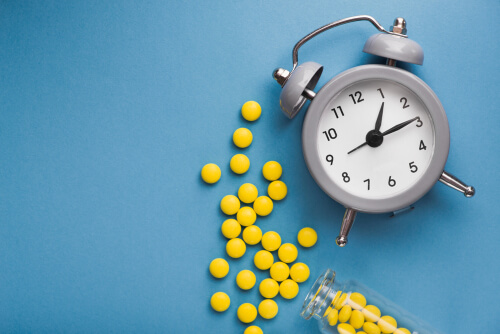
#How long does it take for prozac to work trial#
In the more undesirable situations, they may never get better with that medication, and the person will have to trial others to get the wanted results.įarrokh Alemi, PhD, Professor at George Mason University explains, “Symptom remission is usually defined as 50% reduction in symptoms of depression on the Hamilton scale. When starting a new medication, depression symptoms could alleviate in a matter of days, weeks, or months. How Long Does It Take for Antidepressants to Work? Antidepressants work in different manners at the neurotransmitter level and this may explain why effects can be seen in different timetables. It is likely that both schools of thought have some merit. Researchers have found that some patients have found some antidepressant effects even a few hours after using medications.

Even from the first day someone takes an antidepressant, the medication is active in the brain. 1,2,3Īnother school of thought states that antidepressants do work immediately, but the person will not be able to notice the early differences most of the time. Instead, they need a period of about four to six weeks to begin producing the desired result. Do Antidepressants Work Immediately?Įxperts in the field commonly believe that antidepressants do not work immediately. Before starting any of these medications, you should talk with your doctor about these risks. *These medications have a black box warning, the most serious warning from the FDA for the risk of suicidal thoughts and behaviors in certain people.

Prescribers may recommend many antidepressants for anxiety, OCD, chronic pain, or sleep problems. Monoamine oxidase inhibitors (MAOIs) like tranylcypromine (Parnate), phenelzine (Nardil) and isocarboxazid (Marplan).Īntidepressants can treat much more than major depressive disorder or other types of depression.Tetracyclics like mirtazapine (Remeron) and maprotiline (Ludiomil).Tricyclic antidepressants (TCAs) like imipramine (Tofranil), nortriptyline (Pamelor), amitriptyline, and doxepin.They are as effective in the treatment of depression.

Trazodone, vortioxetine (Trintellix), vilazodone (Viibryd) and bupropion (Wellbutrin) are examples of atypical antidepressants.Īdditionally, there are some older antidepressants that are used less often due to a greater risk of severe side effects. These drugs are a group of medications that do not work like SSRIs or SNRIs, but still have impact on the serotonin and norepinephrine systems. SNRIs include duloxetine (Cymbalta), venlafaxine (Effexor), desvenlafaxine (Pristiq) and levomilnacipran (Fetzima). Rather than only blocking the reabsorption of serotonin, SNRIs impact norepinephrine as well.

The goal of an antidepressant is to peel away the effects of depression, so the person will begin to think, feel, and behave in ways that are no longer influenced by the condition, and they require a prescription. What Are Antidepressants & How Do They Work?Īntidepressants are a large and diverse group of medications for depression that aim to reduce the signs and symptoms of any depressive disorder.


 0 kommentar(er)
0 kommentar(er)
